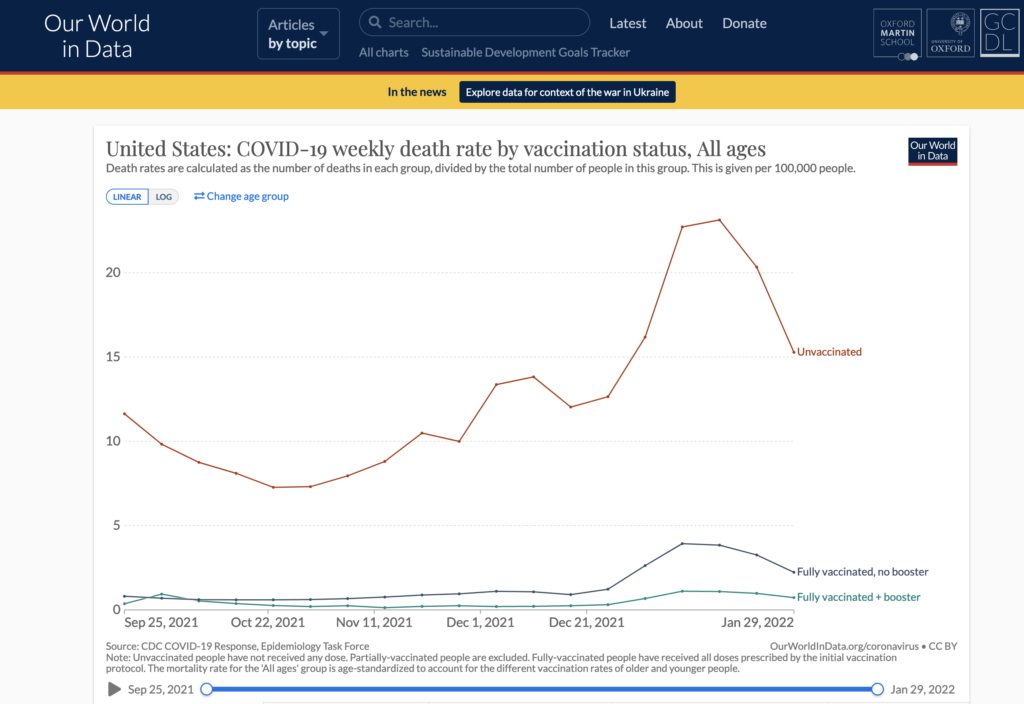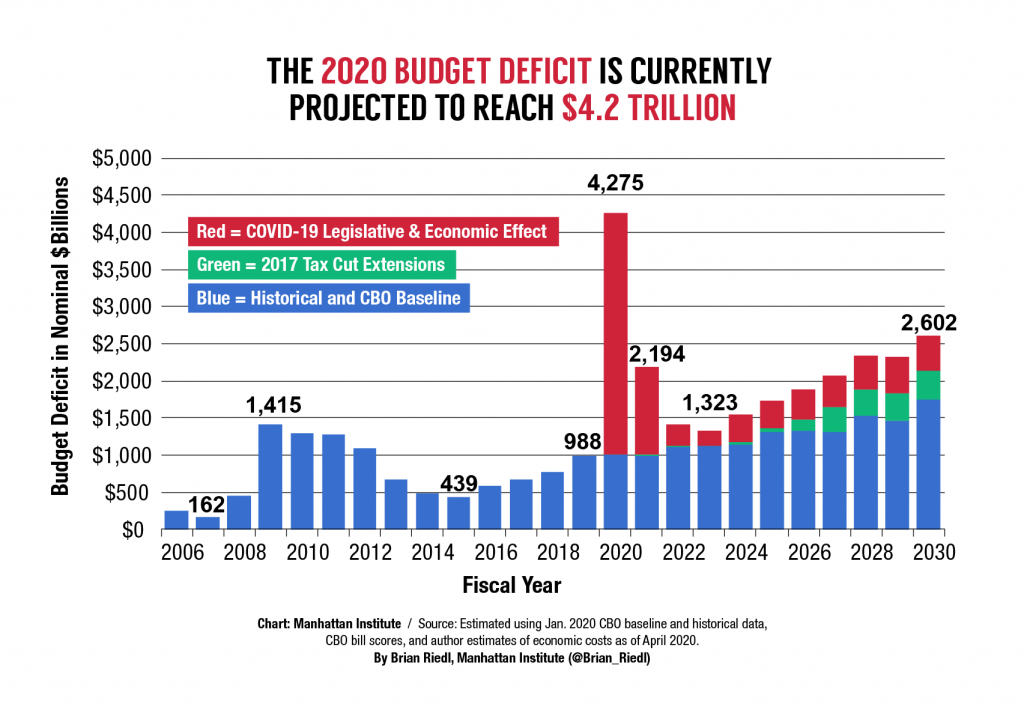Don’t look now, but there is a new Omicron variant — the so-called “Stealth Omicron” — moving across Europe, and it is likely already here in the U.S. It is more contagious than the original Omicron, which is a little scary, given how transmissible the first iteration has proven.
The thing is, this is likely our future. One variant after another, each carrying its own unique attributes and, thus, dangers. As many have said already, Covid is not going away. Rather, it is likely to circulate through the population continually for years, even decades to come, ebbing and flowing much like influenza.
Which means we need to learn to live with it.
I am not, and have never been, a Covid denier. I am vaxxed and boosted, and when the next booster is available, I will get it. I have been diligent about masking, and continue to wear a mask when I shop or go into most public spaces. Put another way, from the beginning of this pandemic, I have followed the science. I’ll continue to do so. And I will continue to urge others (perhaps you, gentle reader) to get vaccinated. Vaccinations remain our single best hope in combatting the pandemic. Vaccines protect individuals and so they also protect communities. If you’re not yet vaccinated, please consider getting the shots.
But having said that, I also have to add this: I am weary of this pandemic, and I find those moments when I am able to take off a mask in public — when being served food or drink in a restaurant, for instance — incredibly liberating. I miss conventions and look forward to attending several this year, including DragonCon, which could be, I know, a super-spreader event waiting to happen. I would love to get to the point where I feel comfortable attending movies, concerts, and sporting events. I enjoy those things. I want them back in my life. I am tired of dealing with supply chain issues and higher prices, both of which are a direct consequence of this worldwide health crisis.
During our older daughter’s fight against cancer, she has at times been immunocompromised. I am deeply sensitive to the needs and fears of those who are at greater risk from the virus. I am also sensitive to the concerns of those who have suffered professionally and financially from the economic impacts of social distancing and shut-downs. Just as Covid itself has shown an uncanny and disturbing capacity for attacking organs and systems throughout the human body, so the pandemic has impacted nearly every aspect of our society and economy. It is, on all levels, pervasive and insidious.
And, once again, it’s not going away.
So how do we live with it, as a people, as a community, as a world? As I said, the best weapon we have is the vaccine. But we also need to recognize that some people simply will not give up on whatever notions or ideologies prevent them from getting vaccinated. There will always be a portion of the population that chooses vulnerability over protection, and that therefore facilitates the spread of future variants. The efficacy of masking is somewhat less clear than that of vaccination, and many vaccine skeptics are even more skeptical of wearing masks. Herd immunity will remain beyond our reach for the foreseeable future.
The same has been true of the flu for decades. And to be clear, I make the comparison reluctantly. Despite the claims of the uninformed, Covid is NOT just a glorified flu. It is NOT just an overhyped cold. Influenza kills between 12,000 and 52,000 Americans annually. The common cold kills far, far fewer. Covid, in its first two years, killed over 900,000 Americans. But flu shots work pretty well for those who get them. Covid vaccines, from what I understand, are actually more targeted and thus more successful.
 And so those who trust the Covid science will remain safer than those who don’t. Those who keep up with vaccinations and boosters will get sick less often and less severely. They will die in far smaller numbers and spend far less time in the hospital. The numbers are dramatic and indisputable. Sadly, but predictably, living with Covid means accepting an ever widening gap in the rates of infection and in case outcomes between those who ignore the advice of medical professionals and those who follow it. It means accepting that some social and economic disruptions will be unavoidable. One-third of the people in this country are unwilling to protect themselves and their families. There are bound to be consequences for this.
And so those who trust the Covid science will remain safer than those who don’t. Those who keep up with vaccinations and boosters will get sick less often and less severely. They will die in far smaller numbers and spend far less time in the hospital. The numbers are dramatic and indisputable. Sadly, but predictably, living with Covid means accepting an ever widening gap in the rates of infection and in case outcomes between those who ignore the advice of medical professionals and those who follow it. It means accepting that some social and economic disruptions will be unavoidable. One-third of the people in this country are unwilling to protect themselves and their families. There are bound to be consequences for this.
In recent months, there have been more and more articles and reports about “compassion fatigue.” Medical professionals are having a harder time expressing sympathy for those unfortunate individuals among the unvaccinated who are getting severely ill. Many, like myself, who make the effort to follow the science, are losing patience with those who don’t. Because their choices are hurting the economy, delaying the return to “normal,” and putting all of us at risk. I suppose it’s fair to say that this post is a symptom of my own compassion fatigue. It’s not that I don’t care that the unvaccinated are getting sick, that so many are being hospitalized, that too many are dying. It’s not that I don’t recognize the tragedy. But I can’t help feeling the outcomes are self-imposed.
I know that’s harsh, but it’s how I feel. We are fighting to find our footing in a world forever changed by this pandemic, and every person who defies the realities presented to us by medical professionals makes this task just a bit harder. We, as a society and a nation, are ready to move on. We are eager to have our lives back. And we are denied the ability to do so by the decisions of a stubborn — and, I would add, misinformed — minority. It is one more growing chasm in a country already riven with such divisions. Sadly, though, that too is part of our new normal.
Wishing you a healthful week.









 And one more point I would like to make. Interest on the national debt currently gobbles up 8 cents out of every tax dollar. The budget deficit for 2020 was $3.7 TRILLION (slightly less than the chart above projects — I included the chart for the trend line). Even before the pandemic hit, necessitating emergency spending, the Trump tax cuts had driven projected deficits way up over where they were by the end of the Obama Administration. Some will try to tell you that those tax cuts simply returned money to the pockets of Americans. Bull. Every dollar that Donald Trump added to the deficit increased that interest expenditure I just mentioned and forced the rest to pay more. By skewing his cuts to the wealthiest among us, he basically forced the rest of Americans to subsidize a tax cut for the rich.
And one more point I would like to make. Interest on the national debt currently gobbles up 8 cents out of every tax dollar. The budget deficit for 2020 was $3.7 TRILLION (slightly less than the chart above projects — I included the chart for the trend line). Even before the pandemic hit, necessitating emergency spending, the Trump tax cuts had driven projected deficits way up over where they were by the end of the Obama Administration. Some will try to tell you that those tax cuts simply returned money to the pockets of Americans. Bull. Every dollar that Donald Trump added to the deficit increased that interest expenditure I just mentioned and forced the rest to pay more. By skewing his cuts to the wealthiest among us, he basically forced the rest of Americans to subsidize a tax cut for the rich. I was watching that night, along with pretty much every other eleven year-old, baseball-loving boy in America. I remember everything about it — the call from announcer Vin Scully, the twist and high stare of Dodgers pitcher Al Downing as he watched the ball sail out over left field, Aaron’s joyful trot around the bases, the two white guys in civilian clothes who appeared out of nowhere as he rounded second base and patted his back and shoulder, the way his jubilant teammates mobbed him at home plate and put him on their shoulders. I still have the issue of Sports Illustrated from the next week, with Aaron on the cover holding up the baseball next to a golden, bolded “715.” And I also still have the special edition baseball card Topps issued that same year proclaiming Aaron baseball’s home run king.
I was watching that night, along with pretty much every other eleven year-old, baseball-loving boy in America. I remember everything about it — the call from announcer Vin Scully, the twist and high stare of Dodgers pitcher Al Downing as he watched the ball sail out over left field, Aaron’s joyful trot around the bases, the two white guys in civilian clothes who appeared out of nowhere as he rounded second base and patted his back and shoulder, the way his jubilant teammates mobbed him at home plate and put him on their shoulders. I still have the issue of Sports Illustrated from the next week, with Aaron on the cover holding up the baseball next to a golden, bolded “715.” And I also still have the special edition baseball card Topps issued that same year proclaiming Aaron baseball’s home run king.